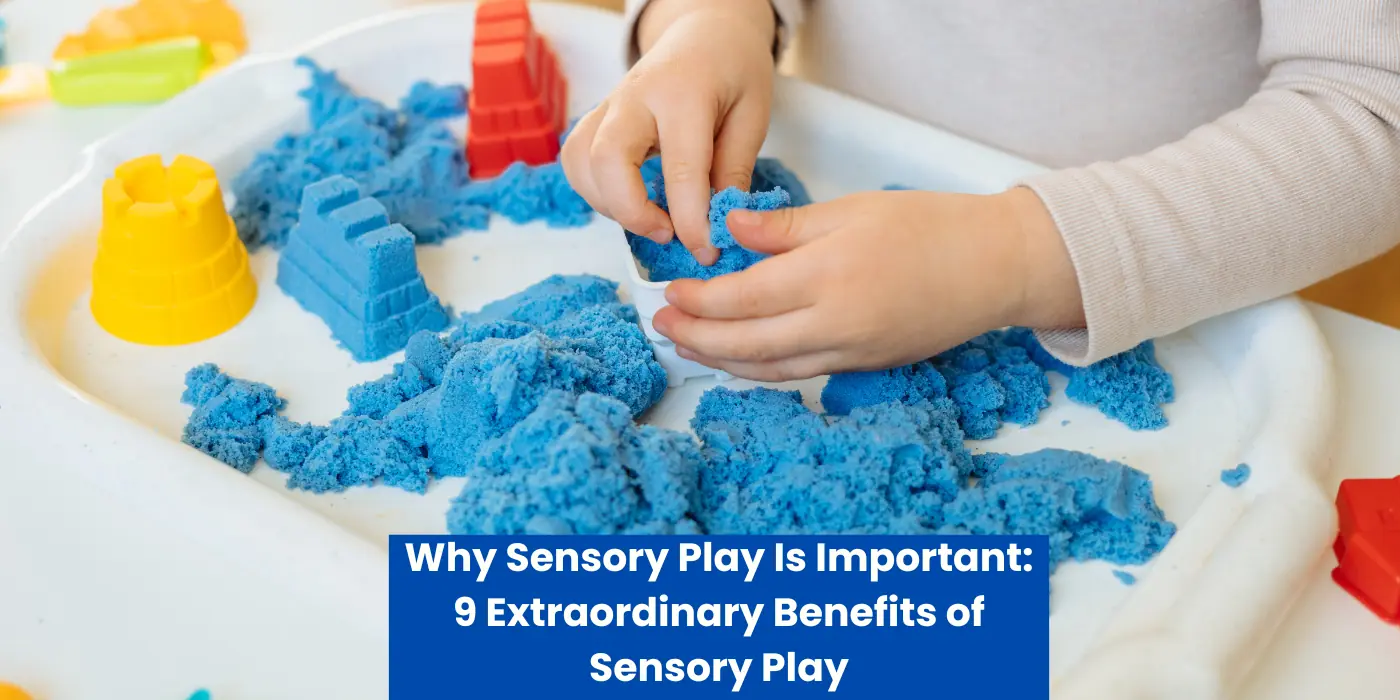Ever wonder why sensory play is important?
The power of touch-and-feel play a major role in every child’s growth and development, helping build nerve connections in the brain. Have you ever noticed how much your child loves to play in the mud, explore the motion of water through splashing, or even just run through a grassy field?
Sensory play, as we call it, can potentially help them build a solid foundation for learning in the future. It makes them aware of their surroundings, encourages their creative minds, builds focus, and, most importantly, enables them to reach their developmental milestones.
Your child’s milestone achievements are heavily influenced by exposure to sensory play; here’s how!
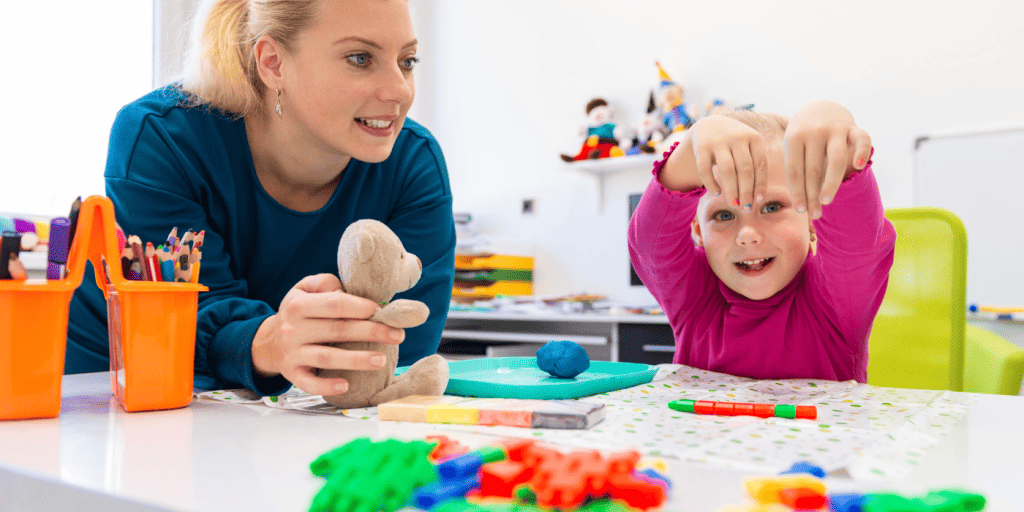
Why Sensory Play is Important : 9 Benefits of Sensory Play for Toddlers and Babies
Infants and young children benefit greatly from engaging in sensory play, as it allows them to learn about their environment in a fun and engaging way.
| Benefit Category | Benefit | Description/Examples |
|---|---|---|
| Cognitive Development | Enhances Memory | Sensory experiences can make impressions that are easier for the brain to remember. For instance, playing with scented dough can help a child remember through both touch and smell. |
| Fosters Problem-Solving Skills | Figuring out how to manipulate materials in sensory bins or discovering outcomes (e.g., mixing colors in water play) enhances reasoning skills. | |
| Promotes Curiosity & Exploration | Sensory play encourages children to ask questions, test hypotheses, and explore the world around them. | |
| Physical Development | Refines Motor Skills | Manipulating small objects in sensory bins or molding playdough enhances fine motor skills. |
| Boosts Hand-Eye Coordination | Activities like pouring, scooping, or threading beads can improve coordination. | |
| Social Development | Encourages Social Interaction | Shared sensory play experiences can foster interactions, sharing, and cooperation with peers. |
| Enhances Communication Skills | Children often discuss what they feel, see, and hear during sensory play, expanding their vocabulary and conversational skills. | |
| Emotional Development | Supports Emotional Regulation | Sensory play can be therapeutic and calming, especially for children with sensory processing challenges. |
| Builds Confidence & Independence | Achieving tasks or exploring new materials in sensory play boosts a child’s self-esteem and autonomy. | |
| Sensory Development | Enhances Sensory Understanding | Regular exposure to various sensory experiences helps children develop their sensory preferences and understand how to respond to different stimuli. |
It’s a great stimulus for ingenuity, originality, and inspiration. The benefits of sensory play for infants and toddlers are many. The top nine advantages of sensory play for young children are:
1. Cognitive Growth
Children’s brain development can greatly benefit from engaging in sensory play. Children’s ability to reason, make decisions, and solve problems, among other cognitive abilities, can benefit greatly from their exposure to the world around them.
Sensory play-meaningful, fun learning in early childhood- helps build nerve connections in the brain. helping your little one with fine and gross motor skills, social interaction and more.
2. Brain Development
Studies have shown that engaging in sensory play might help children with neurological development.
Memory is bolstered, and the groundwork supports language development is laid for future more complex learning activities, such as language and problem-solving, due to this phenomenon.
3. Creative Motor Skills
Young children’s minds benefit greatly from engaging in sensory play. It’s a fun and effective method for youngsters to exercise their imagination and fine motor abilities. Young children learn about their world and how to utilize their hands and imagination via manipulating, mixing, and exploring with their senses.
Problem-solving, body awareness, fine motor skills and hand-eye coordination are some other abilities that improve. They can unleash their imagination via sensory stimulation and play.
4. Language Development
Children’s sensory-based language development is supported through play, especially tactile play. Children’s development is aided by engaging in sensory play in which they become familiar with various items and textures.
Not only may kids pick up on new vocabulary and ideas via sensory play, but it can also help them find their voice and share their sensory experiences more. Children’s language skills flourish with more opportunities to express themselves through sensory play.
5. Emotional Development
Children’s social and emotional skills development is aided by sensory exploration afforded by sensory play. When a child engages in sensory play, they can acquire insight into themselves, control their moods, and develop effective communication abilities via sensory play.
It also aids in the growth of their interpersonal and communicative abilities.
6. Problem-solving
Children learn to think critically and creatively by engaging in a wide range of open-ended activities and exploring a wide variety of materials, all of which provide many chances for them to form hypotheses, find solutions to problems, make choices, and evaluate the outcomes.
The following time, they can adjust their approach to see if it makes a difference.
7. Adaptability
Children are constantly put in novel circumstances during sensory play to respond appropriately. Positive events boost self-esteem and prepare kids to deal with future challenges head-on.
Children may be more motivated to seek out new challenges due to the encouragement they have received.
8. Calming Effect
Children can benefit from the soothing impact of sensory play by using it to relieve tension and anxiety. It’s a healthy approach for youngsters to deal with their feelings and encourage them to discover the world. Children feel safe and secure as they explore various textures and sensations.
Little children may relax and refuel through sensory play.
9. Logical Thinking
When they use their senses to make sense of the world, youngsters learn to be curious, take risks, and reason rationally via sensory play.
Children may lay the groundwork for logical thinking and acquire valuable problem-solving abilities via sorting things by size and form, making patterns, and problem-solving.
In other words, kids may get their hands messy and their minds working as they engage in sensory play.
What Is Sensory Play?
When a child’s senses are stimulated, learning and growth are promoted. This is what we mean by “sensory play.” Here you will find lots of inspiration for sensory play ideas.
Many materials are used to create an environment that is a sensory feast for the eyes, ears, nose, and tongue. Sensory play includes any activities that offer such sensory input. Engaging their senses is a great way to learn new words and build motor, mental, emotional, and social abilities.
Tactile Play

Play Doh 42 pack
This bargain lot of play doh comes in a range of colours, appealing to the eyes and to little hands!
Multi Sensory Toy

Trio of Fidget Tubes
We love versatile toys, and this trio are a sensory treasure trove, representing great value for money
Best Sound Sensory Toy

Hape Rainmaker Toy
Children will love the gentle sound of rain with vibrant, trickling beads
Sensory activities might include themed sensory bins packed with sensory materials, musical instruments, or finger painting. These encourage children to explore a range of sounds, textures and tastes. Sensory play includes all kinds of stimulation-You can set up DIY activities at home or check out sensory toys.
Child development experts claim that children of all ages can benefit from engaging in sensory play, though you can cater the type of play to your child’s age. Using it sparks curiosity, originality, and inspiration. It is also a great way to improve your hand-eye coordination, gross motor skills, fine motor abilities, and ability to think creatively and critically.
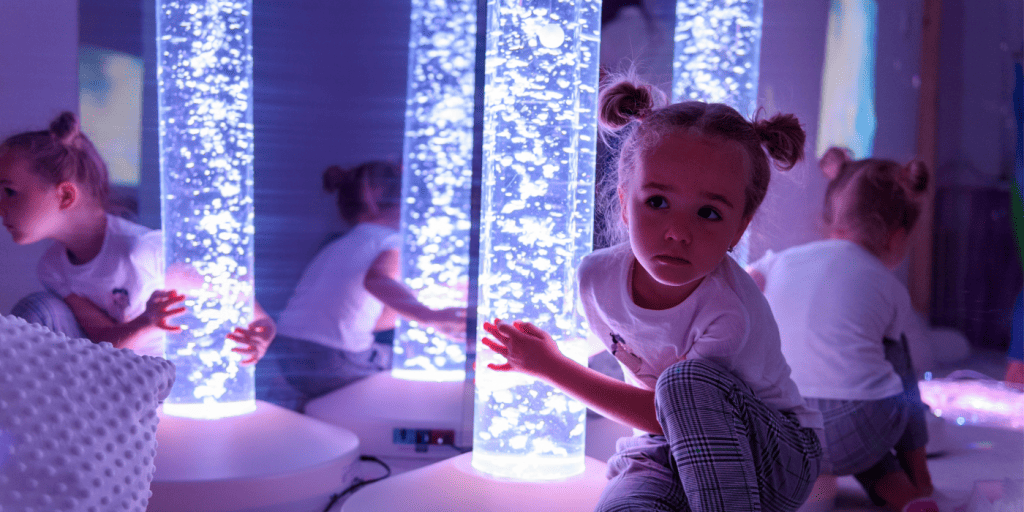
Language, communication, and emotional control are all areas where this approach might be useful. These are the reasons why sensory play is important. Check out our blog on sensory play ideas and activities for little ones. First though, let’s look at how sensory play helps your child’s development.
Features Characterizing Sensory Play: What Are Sensory Activities or Experiences?
The many aspects of sensory play correspond to the five traditional senses: touch, sight, smell, taste, and sound. It also enables balance, bodily awareness, and motion. Whatever we experience through our senses is called sensory experience.
The features of sensory play are
Smell
The smell is essential to children’s sensory development. It helps youngsters distinguish between meals and other items and relate emotionally to the world. A child’s sense of smell helps them recognize their home and parents’ soothing scents.
A child’s sense of smell peaks at birth and develops during the first year. At six months old, newborns can smell their mother and pick her out of a throng. Babies learn to distinguish sweet and bitter smells. At one year old, babies can smell their belongings. As they grow, their scent and awareness improve.
Sight
A child’s sense of sight is critical to overall sensory growth. At birth, vision is the most developed of the senses, and it continues to advance all through adulthood.
Learning about one’s surroundings, recognizing familiar things, and comprehending their relationships are all made possible by a child’s keen sense of sight.
A newborn’s eyesight, for instance, is poor but develops rapidly, allowing the infant to focus on objects, identify faces, and follow moving targets within a few weeks. The eyes get better and better as the kid gets older.

Taste
A child’s sense of taste is among the first to develop. They can learn more about the world and their place in it as a result.
Developing a child’s sense of taste can help them grow more comfortable eating a wide range of foods. For instance, a child’s initial reaction to a novel meal, such as a vegetable, may be resistance.
Touch
The touch enhances kids’ cognitive development. It teaches children about themselves, their world, and others. It’s one of the first feelings kids experience and vital to their intellectual, physical, and personal development.
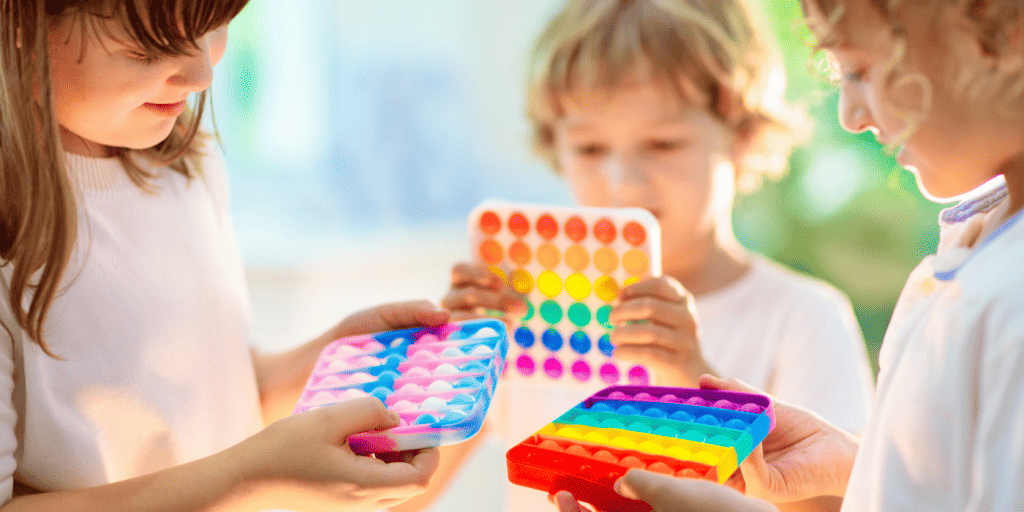
Newborns soon distinguish between their own and their mother’s skin. They do this by touching their mother’s skin and exploring their bodies. This discovery process gives babies self-awareness. This improves their capacity to distinguish people.
Hearing
A child’s sense of hearing is very important. It’s the first sense to form during pregnancy, and it aids newborns in picking out familiar voices and noises. A child’s ability to hear and process sounds improves as they develop and adapt to their surroundings.
For instance, a baby will respond to the sound of its mother’s voice by turning their head or crying. Babies who develop their hearing early are better able to recognize tonal differences and understand spoken language.
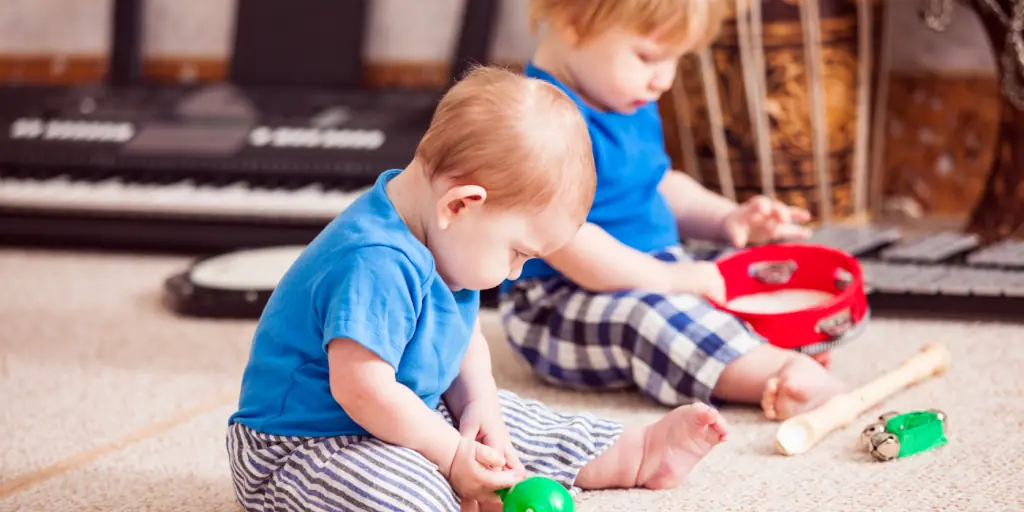
Balance
Having a sense of balance aids a child’s sensory development by allowing them to distinguish between when their body is balanced and when it is not.
Learning to balance helps kids develop a sense of where their body is in space and how its components move in connection to one another and the environment. Also, they are able to learn more about their surroundings and their own bodies as a result.
Body Awareness
It helps children develop their sense of touch and movement by making them aware of how their bodies feel and move. It helps them learn how their body parts move and work together, as well as how to use their bodies to interact with their surroundings.
Body awareness is also an important part of social and emotional development because it helps children learn to recognize and understand their own feelings and emotions and those of others.

Bottom Line
The benefits of sensory play for children are evident, and sensory play activities contribute immensely to a child’s overall development.
Even the most basic sensory activity can encourage your child to listen to their body and respond accordingly. Let them explore, and reach their highest potential through the power of sensory play.

